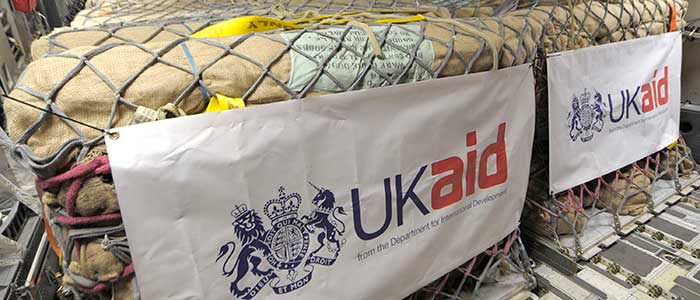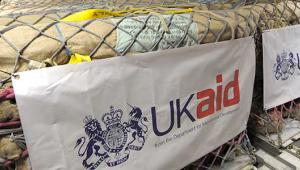The petition, which received more than double the 100,000 signatures needed to trigger a parliamentary debate, was created by UK newspaper the Mail on Sunday.
The newspaper argued that the government should not be obligated to hand over such a slice of national wealth “regardless of need”, especially amid domestic spending cuts. It added that aid spending leads to “huge waste and corruption”.
“Instead, we should provide money only for truly deserving causes, on a case-by-case basis,” it continued, noting that at the current rate UK contributions will rise from £12bn today to £16bn by 2020.
Since a bill was passed last year enshrining the country’s aid commitment in national law, the UK has become one of only a handful of countries to meet a United Nations promise, dating back to the 1970s, to spend 0.7% of national income on overseas aid.
The UK is the only G20 country to meet the target, but comes in last in terms of the size of its contribution as a portion of GNI compared to the six other countries that have complied.
The United Arab Emirates dedicated 1.09% of its GNI on aid in 2015, followed by Norway (1.05%), Sweden (1.04%) Luxembourg (0.93%), Denmark (0.85%) and the Netherlands (0.76%), compared to the UK’s (0.71%).
In cash terms however, the UK is one of the world’s biggest aid contributors, second only to the US. The UK mobilised $18.7bn in official aid funds last year, while the US raised $31.08bn – only 0.17% of its GNI.
Responding to the petition, the UK government stressed that creating a more stable, secure and prosperous world serves to protect security and is in the national interest.
“Britain faces a simple choice: either we wait for the problems of the world to arrive on our doorstep, or we take action to tackle them at the source,” it said, referring to crises like Ebola and Syrian conflict.
It noted that UK aid is spent only where it is most needed and is subject to “rigorous internal and external checks and scrutiny at all stages, and highlighted the government’s new aid strategy, published last October, that cut “wasteful programmes” and ensured spending was “firmly in the UK’s national interest”.
The heads of 20 NGOs including Oxfam, the ONE Campaign, Unicef, and Christian Aid have signed a letter urging British MPs to continue to honour the commitment.
“The public can be proud of the influence Great Britain has on the world stage. We think big, and inspire others to do likewise,” it said, adding that ending the 0.7% commitment sends “all the wrong signals”, both to the world’s poorest and other nations.













